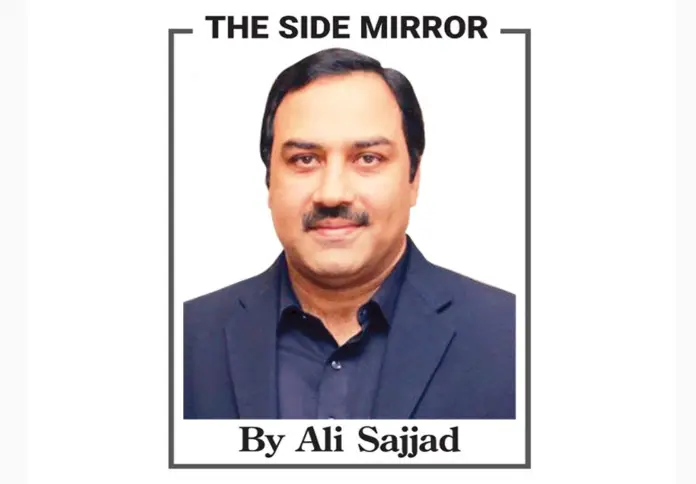Most of the time, TV tickers flashing across screens are about the falling rate of the dollar. This reminds me, and everyone of us that Ishaq Dar is back, and he has started up where he left off around five years ago when he left Pakistan for London in the prime minister’s aircraft. He returned to Pakistan in the incumbent prime minister’s plane, in yet another intriguing turn in the ongoing political soap opera. His return to Islamabad, and then taking of oaths, first as a senator and later on, as finance minister, is the talk of the town. His return, the PML-N says, guarantees to correct every issue plaguing the nation’s economy, such as the devaluation of the rupee and rising inflation, which has become out of control. Ishaq Dar has been in action, and we are waiting for the magic to emerge to ease our pockets.
To some extent, his return has delivered results: on Monday, the Pakistani rupee increased versus the dollar in the interbank market by Rs1.16 as it maintained its upward trend. According to the State Bank of Pakistan, the Pakistani rupee increased by 0.51 percent from Friday’s finish of Rs228.45 to settle at Rs227.29 per $1.
His other high moment was the reduction in petroleum prices. As the public cheered and celebrated the Rs12 per litre cut in the petrol prices, Dar’s predecessor, Miftah Ismail, stepped in. Miftah Ismail, the former finance minister, called Dar’s decision not to raise the petroleum development levy (PDL) this month without the International Monetary Fund’s (IMF) consent “reckless”. But he insisted that what the previous PTI administration did to the nation was “unforgivable.” Shaukat Tarin, the head of the PTI and a former finance minister, had tweeted about the PML-N’s doublespeak, to which Ismail responded.
Shaukat Tarin taunted his successors that we were accused of breaking IMF requirements. Miftah sahib claims that they did not wait to announce the fuel rates till they had received approval from the IMF MD. Explicit doublespeak! Miftah Ismail, however, brought up the fact that his administration had not sought IMF clearance before suspending the petroleum charge for the second time in two days.
These days, Miftah Ismail is making fiery statements. We never knew about this side of his cheerful personality. When Ahad Cheema, the establishment adviser to Prime Minister Shehbaz Sharif, requested him to contact the IMF managing director to see whether gasoline prices could be held for three months. Miftah answered that he would die, but would not ask this.
Miftah’s wounds are visible. The man anchored the economy when it was sailing in hopeless directions. In those days, Ishaq Dar, however, was among the most outspoken opponents of the actions taken by the former finance minister to get the bailout package required to avert an impending default. It is said Ishaq Dar worked as hard as he could when he was in self-exile in London to discredit his predecessor. The ground was already prepared for his return.
Now, it is Miftah Ismail’s turn to pinch and punch Ishaq Dar. Cruel power politics. Whatever his point of view, it is undeniable that the new finance minister’s actions and performance are the most hotly debated issues in business circles and the general public. Will he be able to contain inflation, restore the economy, and stabilise the rupee? What will he be doing differently and why did he replace Ismail?
In my view, the difference between Ishaq Dar and Miftah Ismail is: Dar enjoys the support of former prime minister Nawaz Sharif and has a firm grip over economics. Miftah Ismail, on the other hand, enjoyed the support of those who hate Dar.
By the way, who hates Dar?







